Celebrating International Day of Women and Girls in Science 2022
9 Feb 2022|
- Library, Arts & Archives
11 February 2022 is the United Nation’s International Day of Women and Girls in Science. Established in 2015, the day encourages us all to strive for full and equal access and participation for women and girls across all areas and levels of STEM (Science, Technology, Engineering and Mathematics). This year, the library team have put together a display to help students learn more about the achievements of women in science, in particular the women who contribute to the exceptional scholarship at St Edmund Hall. Here is a little bit about these women and their work.
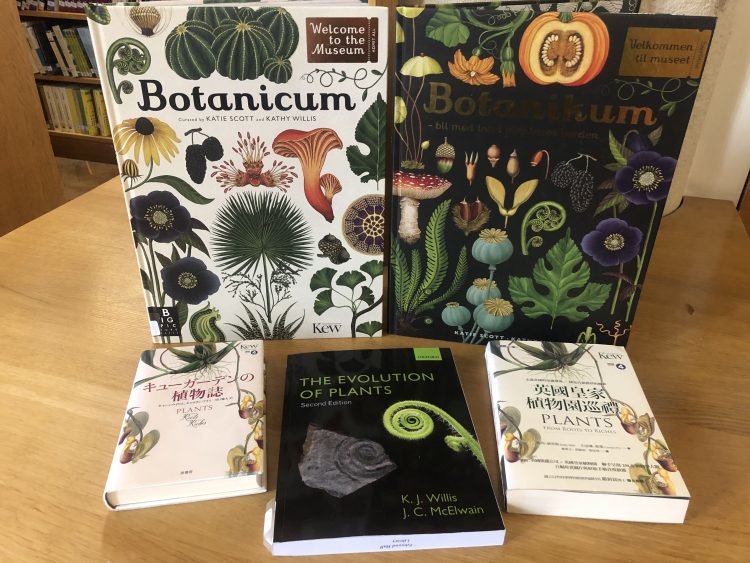
Professor Kathy Willis CBE, Principal
Kathy is a Professor of Biodiversity at the University’s Department of Zoology. In 2015, Kathy was awarded the prestigious Royal Society Michael Faraday Prize, for her work in science communication, and in 2016 she was appointed to the Natural Capital Committee, an independent advisory body to the UK Government which will take forward the execution of the 25-year Environment Plan. The author of over 100 scientific publications, including the landmark The Evolution of Plants, Kathy has also written several popular science books, including Botanicum. Many of Kathy’s works have been translated into multiple foreign languages – as you can see here!
Kathy’s research focuses on the relationship between long-term ecosystem dynamics and environmental change. You can hear Kathy explore the importance of plants through the BBC Radio 4 series ‘Plants: From Roots to Riches’.
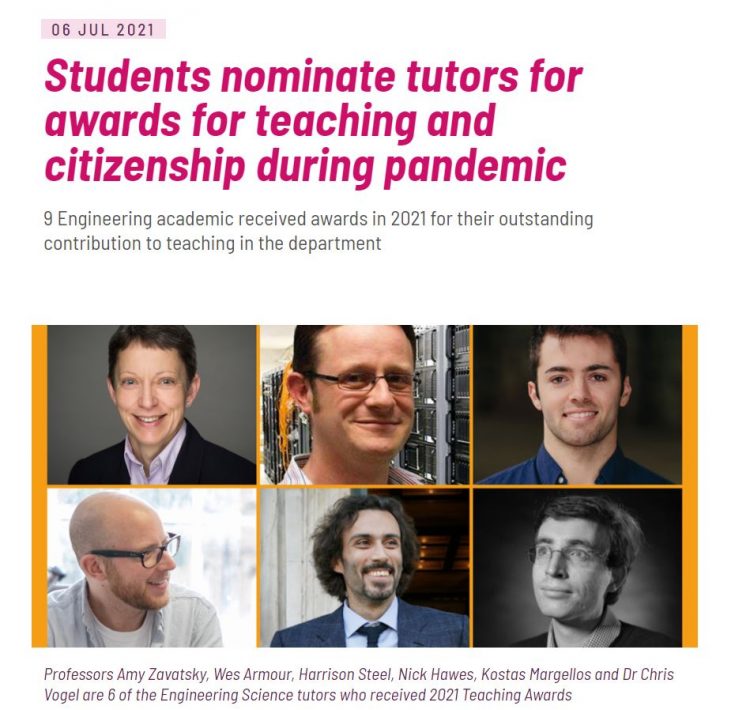
Amy Zavatksy, Tutorial Fellow
Amy’s work in orthopaedic biomechanics is based at the University’s Institute of Muscoskeletal Sciences. Her research is particularly focused on the joints of the lower body, and she collaborates meaningfully with colleagues at the Oxford Gait Laboratory and the University’s Nuffield Department of Orthopaedics, Rheumatology and Musculoskeletal Sciences. Amy has published extensively on a range of topics, including theoretical models of the knee, its ligaments, and associated bones; comprehensive in vitro experimental data sets for knee model validation and knee replacement design; hip, knee, ankle, and foot movement; and recommendations for rehabilitation exercises. Her current work includes an exciting project which aims to develop a more advanced multi-segment foot model that incorporates the motion of the forefoot in a clinically useful and practical way. As well as being a Tutorial Fellow at St Edmund Hall, Amy’s own research aims to improve the experience of students learning about clinical gait analysis, using recent advances in the theory and practice of data visualisation. This project will also have important clinical applications, supporting those involved in clinical gait analysis by reducing the cognitive load involved in making treatment decisions.
Amy is the Tutor for Undergraduates at St Edmund Hall. She is continually recognised for dedication to and sustained excellence in teaching biomechanics. In 2008 she was awarded a University Teaching Award, in particular for her contributions to establishing Oxford’s M.Sc. in Biomedical Engineering. Then, last year, Amy was again awarded a University Teaching Award, this time for her excellent and inspiring lecture delivery and tutorial teaching throughout the pandemic.
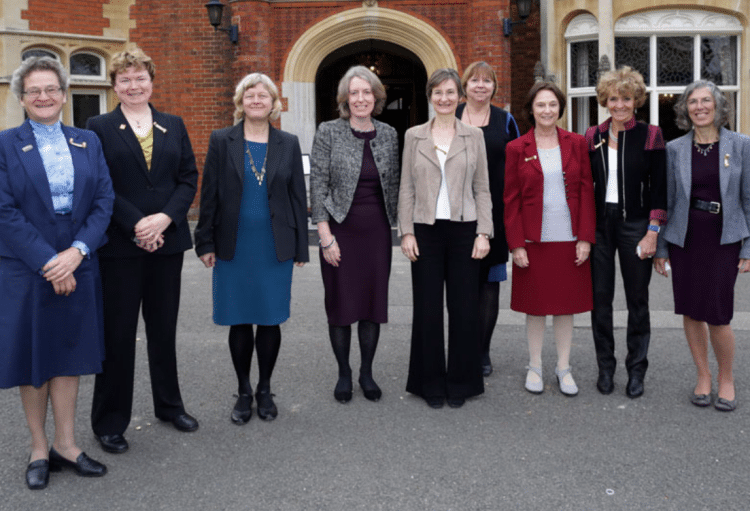
Professor Leslie Ann Goldberg, Senior Research Fellow
Leslie is Head of the University’s Department of Computer Science. She is interested in foundational questions in Algorithms and Complexity Theory. Primary goals in this area are to work out which computational problems can be solved with fast algorithms, and to discover fast algorithms to solve these problems. Another goal is to figure out which problems cannot be solved with fast algorithms, and to prove that no fast algorithms exist for solving these. Leslie is especially interested in randomised algorithms, which solve problems using probabilistic methods. Leslie is interested in the rigorous, mathematical analysis of these algorithms – proving results about how long the algorithms take, and their accuracy. You can read about Leslie’s work in her book Efficient Algorithms for Listing Combinatorial Structures.
In 2016, Leslie was awarded the Suffrage Science Award. In Leslie’s own words, “girls are treated differently to boys in school despite the best intention of teachers and parents, and there’s still a big perception in the world that maths and computing are male things and that women ought to be interested in something else. And so the purpose of the award is to raise the profile of women in the field”. As the award celebrates women in science for their achievements and their ability to inspire others, we can think of no-one more deserving!
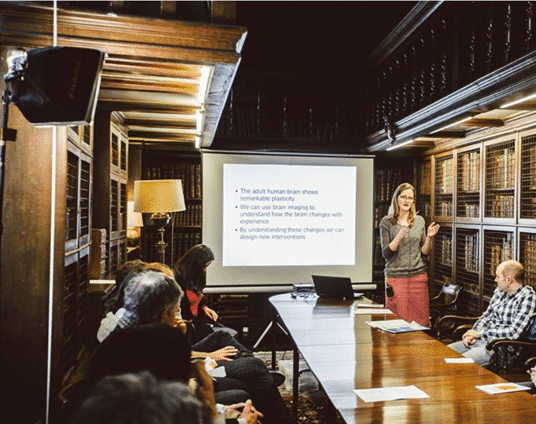
Professor Heidi Johansen-Berg, Senior Research Fellow
Using brain imaging techniques such as MRI to assess changes in brain activity and brain structure, Heidi designs new interventions to improve healthy ageing and boost recovery. Director of the Wellcome Centre for Integrative Neuroimaging (WIN), Heidi is interested in how the brain changes with learning and recovery from damage. She leads a group using cutting-edge brain scanning techniques to monitor brain change and develop new technologies to enhance rehabilitation effects following a stroke.
You can read about brain imaging in Diffusion MRI: From Quantitative Measurement to In-Vitro Neuroanatomy, edited by Heidi. Or, discover how the brain changes when we learn, get older, or recover from damage in Heidi’s excellent talk ‘Watching the Brain Change’.
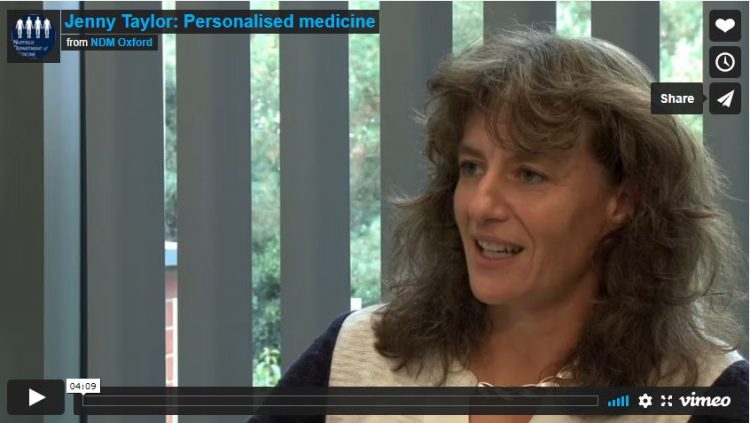
Professor Jenny Taylor, Fellow by Special Election
An Aularian herself (1985, Biochemistry), Jenny specialises in genomic medicine. Associate Professor at the Oxford Wellcome Centre for Human Genetics and Co-Theme Leader at the Oxford Biomedical Research Centre (BRC), Jenny works to answer questions about how to bridge the gap between genetics research communities, and doctors and healthcare professionals in the NHS. She leads the Genomic Medicine Theme at the BRC in multi-disciplinary research, bringing researchers and clinicians from a range of medical specialities together with other experts, including clinical scientists from diagnostic laboratories, and specialists in health economics and ethics. Together, they aim to understand if genomic research discoveries can be useful for the diagnosis or treatment of medical conditions, and to explore how technologies can be adapted for routine use in the NHS.
Genomic medicine allows patients to be treated in a very personalised way, as Jenny discusses in her fascinating interview about Personalised Medicine. As Jenny explains, “Clinical diagnoses can be quite broad umbrella descriptions and personalised medicine aims to introduce and integrate a lot of different test results to ensure that the particular condition a patient has is understood at a variety of levels and the therapy or clinical management is targeted accordingly.”
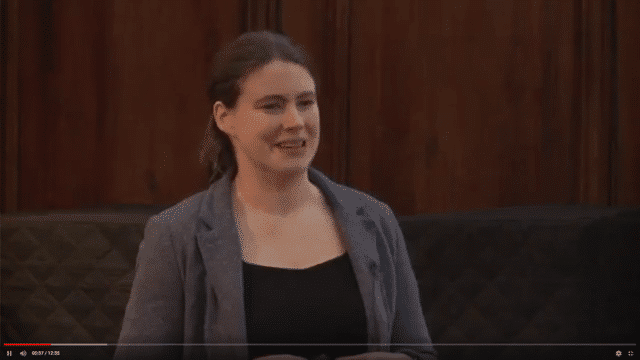
Professor Charlotte Stagg, Fellow by Special Election
Charlotte chairs the Centre for the Creative Brain at St Edmund Hall, bringing together a range of disciplines to explore how neuroscience makes sense of what is most human in us, and how insights from art, music, and literature can enrich our understanding of the brain.
Charlotte’s primary interest is in understanding how the brain adapts to new challenges. With the ultimate aim of developing novel therapies, she focuses in particular on the processes underlying the learning of new motor skills and in the recovery of motor function after stroke. In her fascinating talk The Stimulated Brain, you can hear Charlotte discuss how non-invasive brain stimulation techniques have been around since Ancient Greece, and how these techniques have started to be used with stroke survivors.
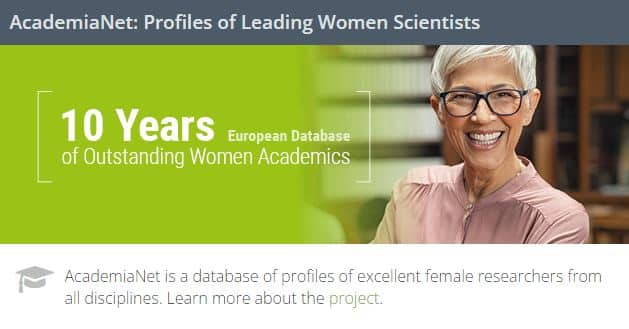
Professor Krina Zondervan, Fellow by Special Election
A Professor of Reproductive and Genomic Epidemiology, Krina is Head of the Nuffield Department of Women’s & Reproductive Health. Her research group work to understand the pathogenesis of women’s health disorders using genomic, molecular, and environmental epidemiological research methods. Based at the Wellcome Centre for Human Genetics, Krina’s research focuses in particular on endometriosis: a condition which is estimated to affect 1.5 million women in the UK and 176 million women worldwide. Her work has included leading a global initiative in endometriosis research to develop standardised deep phenotyping tools and sample collection protocols; these are implemented so far in 18 endometriosis research centres worldwide. Krina is also a Board member of several organisations including World Endometriosis Society, and the Co-Director of the Oxford Endometriosis CaRe Centre. This organisation seeks to identify what causes endometriosis to improve our understanding of its different forms and to help provide evidence-based, patient-focussed care of the highest quality.
In 2013, Krina was named an Outstanding Female Scientist by AcademiaNet. Nominated by the Wellcome Trust, Krina was awarded this honour in recognition for her outstanding research and her leadership in the field of women’s reproductive health.
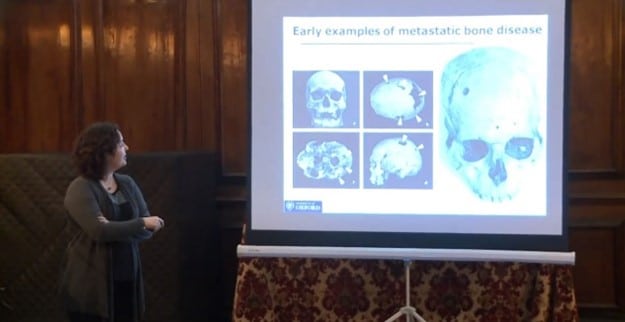
Professor Claire Edwards, Fellow by Special Election
Claire’s research focuses on the pathogenesis of cancer-induced bone disease, such as the contributions of the host bone marrow microenvironment and the role of obesity, adipocytes and adipokines. She is Associate Professor of Bone Oncology, with a joint appointment at the Nuffield Department of Orthopaedics, Rheumatology & Musculoskeletal Sciences and the Nuffield Department of Surgical Sciences, at which she leads the Bone Oncology Research Group. This group aims to identify the mechanisms contributing to bone disease caused by cancer and develop new treatments for these conditions. Claire’s research focuses primarily on the role of the tumour microenvironment and tumour-host interaction; in particular, she and her group are currently researching the metabolism in the prostate cancer-bone microenvironment and the unfolded protein response in prostate cancer bone metastases.
Cancer-induced bone disease is a characteristic feature of several types of cancer, including but not only tumours that metastasise to bone such as breast, prostate and lung. In addition to the development of debilitating skeletal complications, the bone marrow provides a unique hospitable microenvironment, and once tumours become established in bone, they are largely unresponsive to treatment. Want to find out more? Watch Cancer: Why It’s Bad to the Bone in which Claire gives a fascinating and accessible overview of why cancer metastasis to bone is so devastating, what the challenges are, and what the research is trying to do about it.

Professor Carly Howett, Tutorial Fellow
A Planetary Physicist, Carly finds new ways to explore our solar system through instrumentation and ground-based observations. Her main research interest is in understanding the surface properties of icy worlds, including Pluto, Saturn’s icy moons, and Jupiter’s Trojan asteroids. Carly works extensively with NASA, including as the Deputy Principal Investigator of Trident (a mission exploring Neptune’s moon Triton) and Principal Investigator in a NASA-funded study to determine the feasibility of returning to Pluto and the Kuiper Belt. Carly is also an Instrument Scientist on NASA’s Lucy mission and Deputy Principal Investigator of the Ralph Instrument on New Horizons. You can read more about her work in The Aularian (Issue 28, pages 12-13).
Carly is passionate about promoting science to girls and other minorities through by promoting best practice, allyship, and training. She also talks regularly in schools and on TV, Radio and Podcasts. Have a listen to her on STEAM Powered – a podcast hosting conversations with women in STEAM.

Dr Claire Nichols, Tutorial Fellow
After initially aspiring to be a theoretical physicist, Claire quickly discovered the practical side of Earth Sciences was a much better fit and particularly enjoyed field trips and the opportunities to travel to remote places! Claire uses magnetism as a novel tool to understand Earth and planetary formation, the environment of early Earth and planetary habitability. Earth has undergone billions of years of complex physical and chemical evolution leaving many questions about its earliest history unresolved. Claire’s work maintains that interrogating the magnetic signals preserved by ancient terrestrial and extraterrestrial materials much insight can be gained as to how our solar system and planet formed and how life subsequently emerged. Claire’s research combines synchrotron and electron microscopy techniques with rock magnetism, paleomagnetism and fieldwork in an attempt to understand planetary formation and Earth’s earliest history. Most recently, she has been investigating an exciting range of topics, including the role and significance of the polar wind for atmospheric escape.
During her Postdoctoral Fellowship at MIT, Claire studied lunar rocks from the Apollo missions using a combination of astronaut field geology and laboratory techniques to recover information about the ancient lunar magnetic field. This included working closely with NASA’s original photos from Apollo 17, such as this one, to reveal how rock samples from the moon were oriented when they were part of the lunar bedrock!
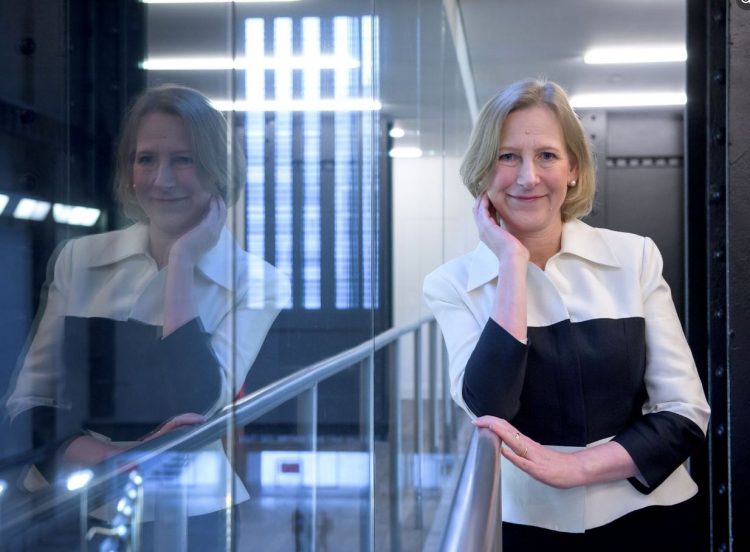
Faith H. Wainwright, Honorary Fellow
In 1983, Faith was one of the first two women to graduate from St Edmund Hall with a degree in Engineering. She has gone on to an impressive, award-winning career as a structural engineer, working on projects including The Shard and the Tate Modern. She has also continued to lead the way for other women in science: in 2004 she became the first ever woman to be made a member of the Joint Board of Moderators, the professional body overseeing the accreditation of university degree programmes in civil engineering. Faith was made a Fellow of the Royal Academy of Engineering in 2002, and in 2012 was awarded an MBE for services to the Built Environment and Engineering Professions. Working for design firm Arup, and driven by a passion for driving excellence in her industry, Faith led the establishment of Arup University: a unique initiative supporting skills development and collaboration through learning, research and knowledge sharing.
In 2016, Faith was featured in St Edmund Hall’s own Women Inspire series. Have a read for her reflections on engineering, the Christian Union, and rowing!
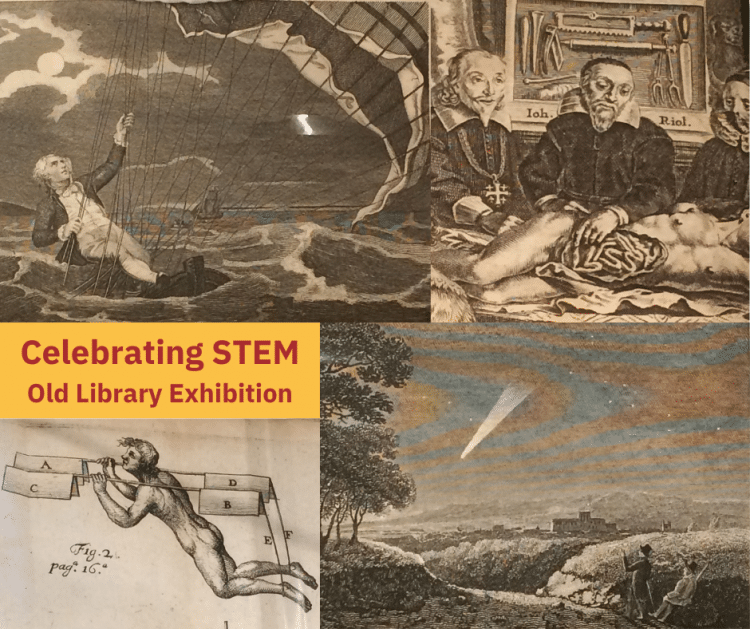
Two displays
We are showcasing Women in Science in our Old Library as well as in our Main Library in St-Peter-in-the-East. If you’d like to see the Old Library display, please do let us know at library@seh.ox.ac.uk and we’d be happy to organise a visit. The Main Library is open 24/7 to students, staff and Fellows, and most books in the display can be borrowed! We’d be delighted to see you.
Category: Library, Arts & Archives